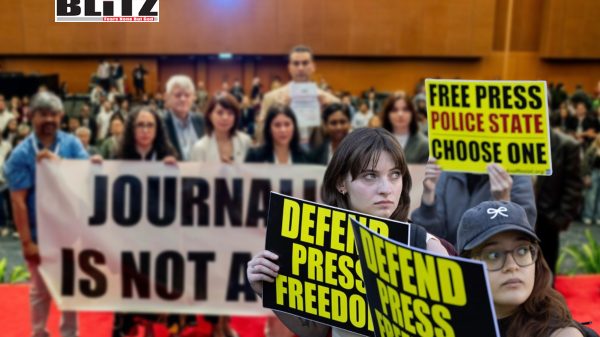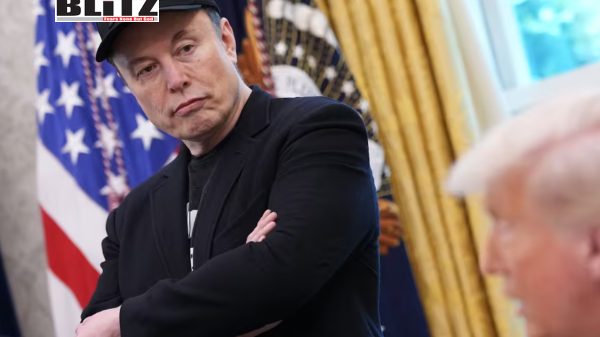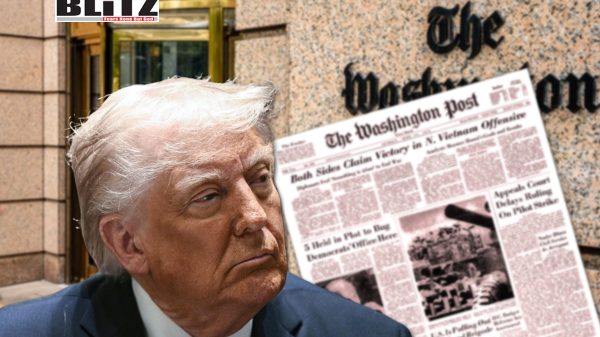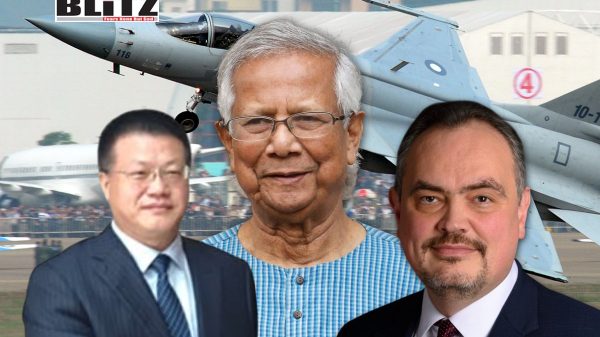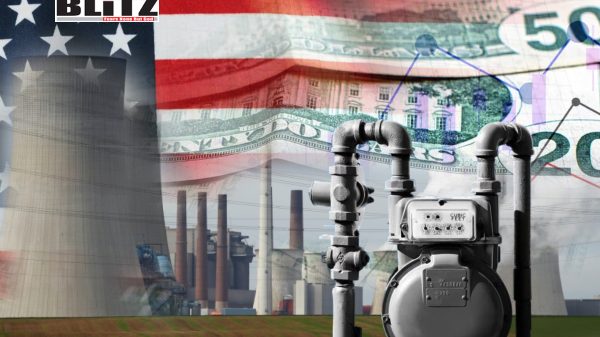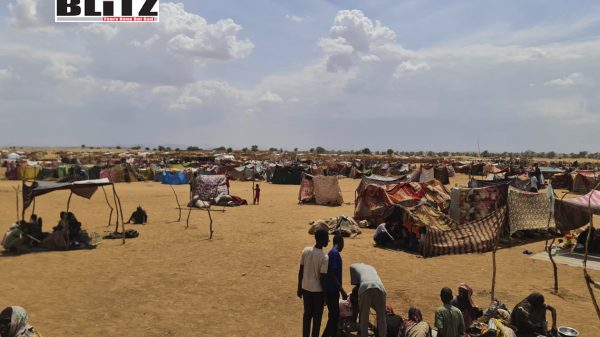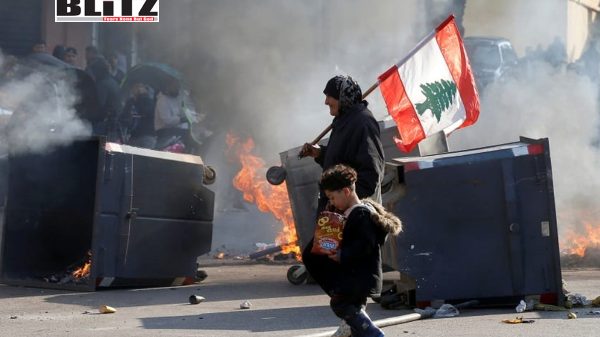Macron calls emergency summit amid Ukraine peace talks
- Update Time : Monday, February 17, 2025
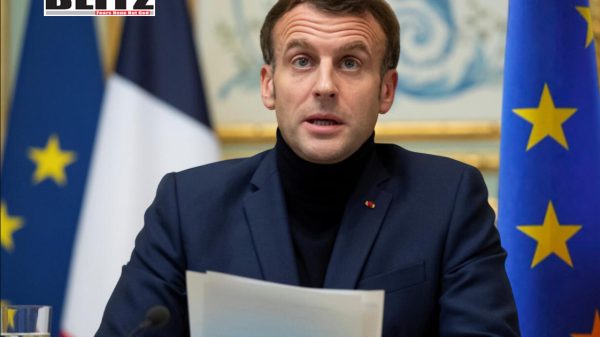
The European Union has been caught off guard by the latest developments in the ongoing Ukraine conflict, as the United States and Russia have reportedly moved toward direct peace talks without European involvement. French President Emmanuel Macron has responded by calling an emergency summit of European leaders, signaling growing concerns in Brussels over Washington’s unilateral approach to diplomacy. The summit, set to take place in Paris on February 17, aims to forge a unified European response to a process that appears to sideline the EU.
The latest diplomatic shift emerged after US President Donald Trump and Russian President Vladimir Putin spoke directly on February 12, their first confirmed conversation since the Ukraine conflict intensified in February 2022. The call was followed by discussions between top diplomats from both countries, paving the way for a possible Russian-American summit on Ukraine.
Adding to European anxiety, US Special Envoy Keith Kellogg later confirmed that EU nations would not be included in the upcoming negotiations, which are reportedly set to take place in Saudi Arabia. This decision has sparked alarm among European leaders, who have played a central role in supporting Ukraine through economic aid and military assistance but now find themselves excluded from key diplomatic efforts.
French President Emmanuel Macron, who has long pushed for a greater European role in global security affairs, swiftly announced a summit to address the issue. The conference in Paris is expected to bring together key European leaders to discuss the continent’s next steps. Speaking at the Munich Security Conference, Polish Foreign Minister Radoslaw Sikorski welcomed Macron’s move and emphasized the importance of European unity in the face of Trump’s negotiation tactics.
“I’m very glad that President Macron has called our leaders to Paris,” Sikorski said, as quoted by Politico. “We need to discuss in a very serious fashion the challenges posed by Trump’s approach.”
Among those confirmed to attend is Polish Prime Minister Donald Tusk, who has accepted Macron’s invitation and will travel to France next week. “We need to show our strength and unity,” Tusk said. Meanwhile, The Guardian reported that UK Prime Minister Keir Starmer is also expected to attend, although the full list of invitees has not yet been disclosed.
Macron has previously stated that while Ukraine must lead negotiations regarding its own sovereignty, Europe has a crucial role to play in shaping the broader security framework. He has argued that any future settlement must include guarantees for European security, making EU involvement in talks essential.
Perhaps most notably, Ukrainian President Volodymyr Zelensky has also been left out of the negotiations in Saudi Arabia. Despite his firm stance against direct talks with Putin-enshrined in a 2022 decree that explicitly forbids Ukrainian officials from engaging with the Russian president-Zelensky expressed frustration over the apparent exclusion of his government from key discussions.
“Maybe there is something at the table, but not on our table,” he told journalists at the Munich Security Conference. His remarks underscore Ukraine’s precarious position: while Kyiv remains heavily reliant on Western military and financial aid, its influence over diplomatic negotiations appears increasingly limited.
The Biden administration had strongly backed European involvement in Ukraine’s defense, working closely with NATO and EU partners. However, Trump’s return to the White House has seen a shift toward more direct engagement with Russia, raising concerns that he may be willing to strike a deal that does not prioritize European interests.
Trump’s approach has already drawn criticism from European leaders, with Sikorski warning that Brussels must respond to Washington’s changing tactics. European governments have long feared that Trump’s transactional style of diplomacy could weaken transatlantic alliances, and the decision to exclude the EU from the talks appears to confirm those fears.
The choice of Saudi Arabia as a venue for negotiations is also significant. Riyadh has maintained relations with both Moscow and Washington while positioning itself as an emerging diplomatic power. Hosting these talks allows Saudi Arabia to further cement its status as a mediator in global conflicts.
However, the exclusion of the EU and Ukraine from these discussions raises major questions about the legitimacy of any potential agreement. Critics argue that any peace deal reached without direct input from Ukraine or its closest European allies could be seen as an imposed settlement rather than a genuinely negotiated resolution.
Macron’s push for a European response also comes at a time when France is seeking to assert its leadership within the EU. With German Chancellor Olaf Scholz facing domestic political challenges and Britain’s post-Brexit role in European security still evolving, Macron sees an opportunity to position France as the central player in EU foreign policy.
Despite these efforts, it remains unclear how much influence the EU can exert over the unfolding negotiations. If Trump and Putin move forward with talks in Saudi Arabia without European involvement, Macron’s summit may amount to little more than an expression of frustration rather than a decisive intervention.
The upcoming Paris summit underscores Europe’s growing concerns about being sidelined in major geopolitical decisions. While Macron is seeking to rally European leaders in response to Trump’s diplomacy, the reality remains that Washington and Moscow are moving forward on their own terms.
For Ukraine, the situation is particularly precarious. While Zelensky continues to call for international support, the apparent exclusion of his government from the Saudi negotiations suggests that the most critical decisions about Ukraine’s future may soon be made without Kyiv’s direct input.
As Europe scrambles to respond, Macron’s emergency summit will be a crucial moment for EU leaders to reassess their strategy. Whether they can effectively counter Trump’s unilateral approach, however, remains an open question.



